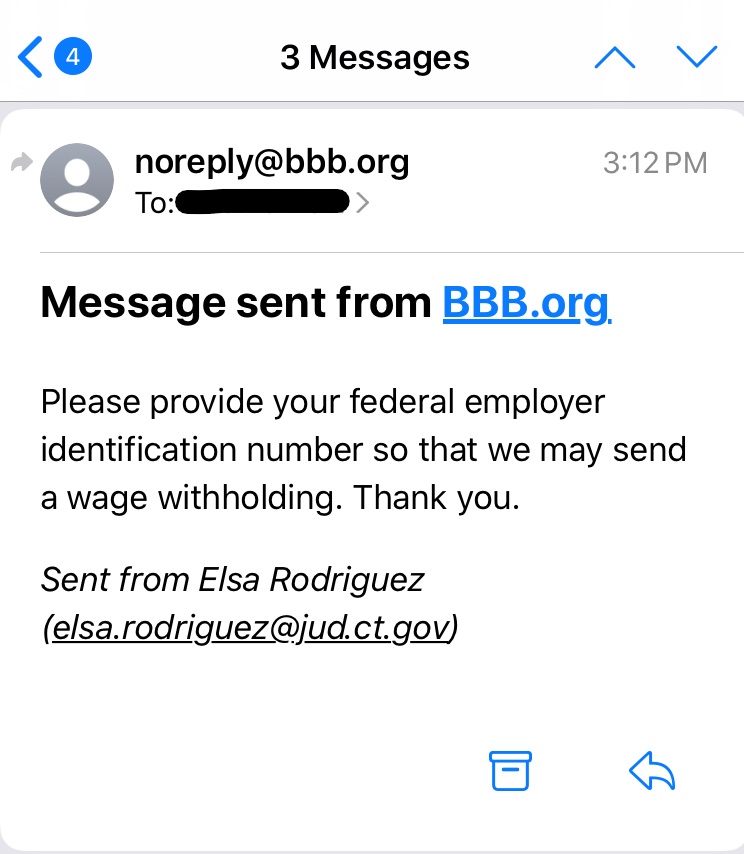
CROMWELL, Conn.—Have you received an email from the Better Business Bureau requesting your federal employer identification number or other confidential information? It's not from us! Better Business Bureau Serving Connecticut has recently been contacted by several businesses who have received such emails.
While a BBB office may contact a business for a variety of reasons, you should never disclose personal or financial information from an unsolicited communication over the phone or via email.
In September 2019, Better Business Bureau released an international investigative studywhich found that business email compromise scams are skyrocketing in frequency and have cost businesses and other organizations more than $3 billion since 2016.
Business email compromise (BEC) fraud is an email phishing scam that typically targets people who pay bills in businesses, government and nonprofit organizations. By clicking on links, downloading unknown attachments, or responding with confidential information the scammer is obtaining everything they need to carry out a business email compromise scam.
BEC fraud can take many forms, one in Connecticut, involved a local school district employee receiving an email that requested all employees W-2 information be emailed to another district employee. This resulted in 122 suspicious Forms 1040 filed electronically with the IRS in the name of victims with claimed tax refunds totaling $596,897.
Here are some tips to remember when maintaining your inbox and avoiding an email phishing scam.
Who is it from? Always check to see who the email is from and if their email address looks legitimate. Scammers can spoof the name that appears when the email is sent but always check the actual address. Any emails coming from BBB Serving Connecticut will be from an @ct.bbb.org domain.
Where is it taking me? If you don't know who is sending the link or if a link seems out of place always be skeptical and avoid clicking it. Just because the link may look like a web address, by hovering over it with your cursor you could discover that the actual destination is different.
What is it? Several email phishing scams are generic in nature but encourage recipients to "see attached." Avoid opening unsolicited email attachments, especially from people you do not know.
How do I confirm this is real? Most BEC fraud could probably be stopped if employees who were directed to send money or hand over confidential information simply called the person and asked them to confirm it. Emails aren’t sufficient to ensure you are talking to the right person. Pick up the phone or walk down the hall.
If you ever receive an email from BBB and you are unsure of its validity, or have any consumers questions please call 860-740-4500.
F